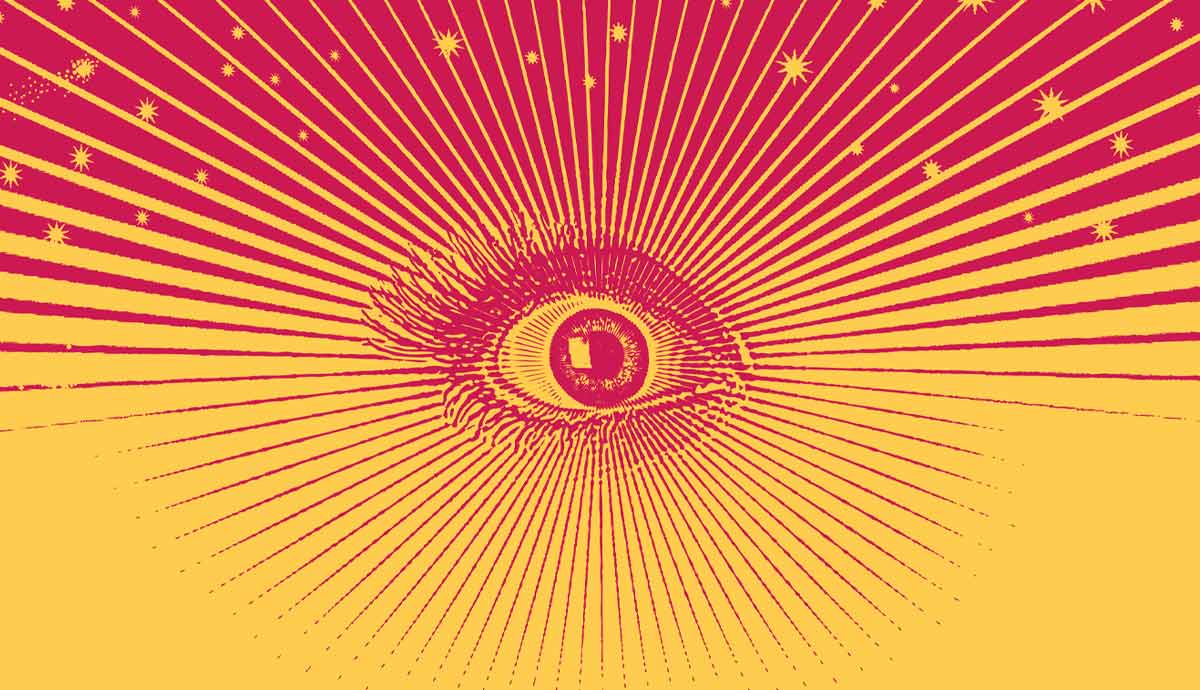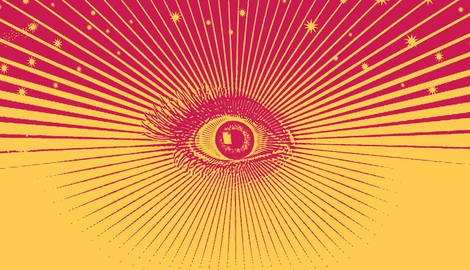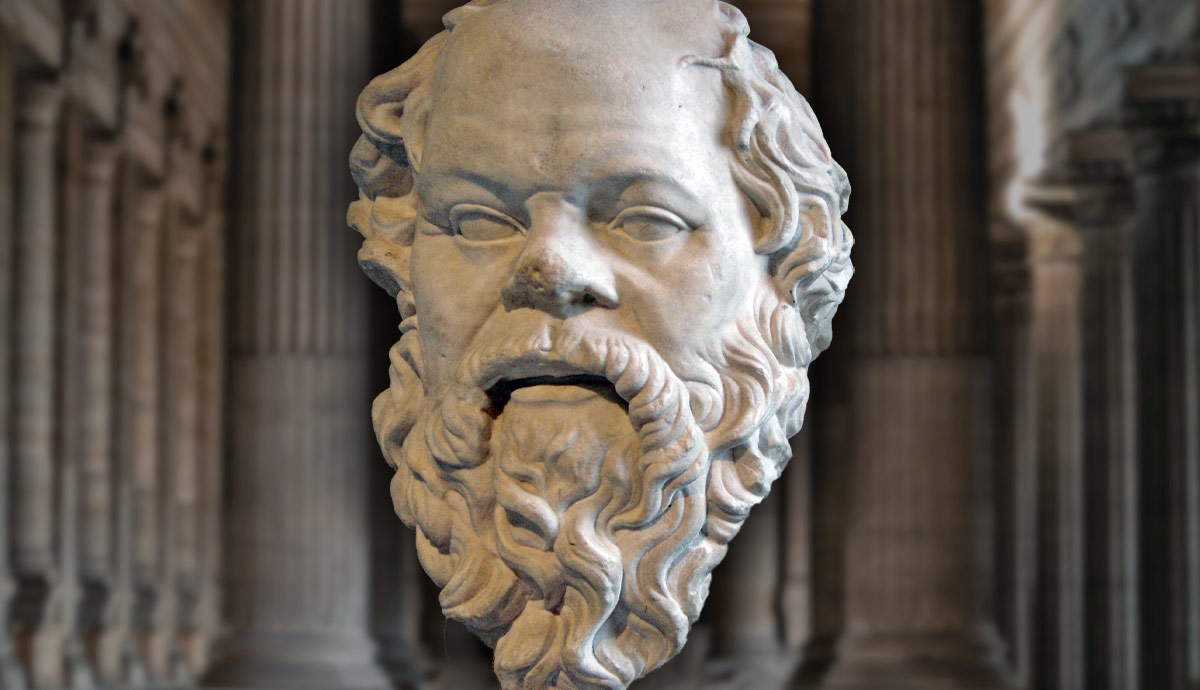
For centuries, intuition has been a source of great mystique. Now, we live in a fast-paced world. We have to make decisions quickly because there is so much information spinning around us. Therefore, at this moment, using intuition as a tool to make decisions is increasingly important. But should we consider our intuition a reliable source of good advice? Shouldn’t we really just reason with our minds, logically considering things? Check out what some philosophers have to say about all this.
The Concept of Intuition in Ancient Times

Intuitionism was an important concept in ancient philosophy, and leading thinkers like Socrates, Plato, and Aristotle explained it differently. Socrates considered intuition the way to holistic self-knowledge, with a special focus on introspection and implementation of the realization of one’s inner workings.
Plato figured it as that shining moment of instant knowledge rooted in some kind of preparation of the mind and insight into the world of ideas. He thought such intuitive moments were the only chance to understand metaphysical truths. Furthermore, he supposed that the positive kind of emotions played an important role in the process of understanding.
Aristotle further underscores the importance of intuition in deducing first principles and forming the foundations of scientific reasoning. According to him, intellectual intuition allows high concepts to be perceived directly, enabling man to fully comprehend the substance of things. For Aristotle, intuitive knowledge served as a form of wonder that sparked inquiry into fundamental truths.
Although each had his view of intuition, philosophers were averse to the thought that intuition is necessarily based on sense perception. They actually elevated intuition into a higher plane of intellectual cognition by pointing out its role as an ability that made it possible to have deep insights about oneself as well as the world.
Through the teachings and philosophical inquiries of Socrates, Plato, and Aristotle, this concept was developed as a powerful tool for learning and enlightenment—wisdom and truth.
Intuition as per Rene Descartes

The great philosopher and mathematician Rene Descartes approached the concept of intuition as a way to acquire knowledge. He reasoned that intuitive and discursive knowledge do not exclude each other but rather depend on one another. According to Descartes, intuition is the highest form of an intellectual knowledge state where the mind is reasoning and, at the same time, contemplating.
Descartes accepted that there are innate ideas in man that determine his concept of objective reality. He referred to these innate ideas as indispensable for a ready-made system upon which knowledge is being hung by intuition.
Descartes believed that intuition is the route by which man discovers and perceives their existence. In his methodology, he thus stressed skeptical prudence and the requirement for accepting those things that are only seen clearly and distinctly to avoid wrong opinions.
At the center of Descartes’ life project was his famous statement, “I think, therefore I am,” which is viewed as the foundational principle from which all other forms of knowledge derive their validity. This “cogito” proposition is considered a methodological and logical ground for establishing certainty in one’s existence and understanding.
In essence, Descartes’ discussion of intuition brings out the whole process as a very crucial mediator between innate ideas and consciousness, a process that leads to an assurance of truthfulness and certainty in human thought processes. Through his careful study of intuitive reasoning, Descartes points out how intuition can be used as a reliable guide for determining truth within uncertainty.
Spinoza’s Teachings on Intuition

For Baruch Spinoza, intuition had everything to do with the domain of rationalistic comprehension, far from any mystical assumptions and yet thoroughly embedded in the quest for truth.
Much in the same way that Descartes’ adjuration was to focus upon a clear and discerning mind, so too did Spinoza view intuition as a means of coming to understand the reality of things through an appreciation of substance.
Unlike mere true ideas, an adequate idea in Spinoza’s philosophy inherently possesses self-confidence and requires no external verification. For him, intuition does not act as something independent but as an integral part of the course of reason, interlacing with deductive processes that form the very basis of knowledge.
By referring to false or fictitious ideas diverging from the natural order of things, Spinoza insists on the necessity of keeping thought in line with the principle of nature. They can do so through intuitive understanding and become part of the general fabric of being, integrating God and nature.
In this dynamic venture of the intellect, which conforms to intuition, man finds freedom in embracing universal interrelatedness—an autonomy from narrow self-concern to a broadened vision encompassing transient phenomena.
Thus, in Spinoza’s conception, the truth lay in recognizing one’s intrinsic connection with the divine and natural world and breaking free of constricting boundaries for a larger identity.
Through deep self-inquiry, using intuition and reasoning, people would come to realize grand truths that would not only enlighten them on the way to actual comprehension but also on the way to emancipation from alienation.
The Concept of Intuition in the Teachings of Leibniz

In Gottfried Wilhelm Leibniz’s philosophies, intuition gains a deeper meaning than empirical truths. Leibniz distinguishes between the truth of the facts based on sense perception and rational, necessary truth based on logic and universality.
Relative to the other type of truth, truths of fact can change and are subject to empirical variations. In contrast, truths of reason possess a timeless, necessary quality stemming from the principle of identity.
For Leibniz, intuitive knowledge epitomizes the highest form of understanding characterized by such clarity and completeness. The grasp of concepts and phenomena flows holistically through intuition, where all relevant properties apparently converge in a single shot of consciousness.
This rational intuition became the measure for defining concepts and making statements based on theoretical principles and practical observations.
Leibniz insists that intuitive knowledge is most crucial in the understanding of primary clear and distinct concepts. One needs it to look into the essence of objects with precision. Devoid of intuitive insight, our knowledge is partial and fragmented.
We integrate all the aspects of a given experience into a unified whole of intuitive cognition. As Leibniz is at pains to point out, intuition is not an isolated moment—a flash in the pan, as it were—of reaching for deeper understanding.
In other words, intuition, according to Leibniz, becomes instrumental in the deepest knowledge, reaching beyond the surface level and going literally to all secreted layers of truth woven into the very stuff of reality.
Accepting intuitive knowledge will mean stepping upon truths that lie far beyond the dimensions of exact empirical data or logical deduction—an approach to metaphysical foundations mirroring reality.
Locke and His Reflections on the Nature of Intuition

John Locke, one of the greatest philosophers in history, offers an even more insightful view on intuition regarding sensualistic epistemology. Whereas Descartes defined intuition based on innate ideas, Locke emphasized the understanding that knowledge rests largely on the contemplation of the ideas in one’s mind.
According to this philosopher, intuition gives the highest degree of guarantee for truth because there is a clear and immediate perception of agreement or disagreement of ideas without the intervention of other ideas. In this respect, clarity and immediacy would make intuitive knowledge supreme in certainty for human understanding.
In the first place, he makes a fundamental distinction with regard to knowledge as either intuitive or demonstrative. Both are secure, but where there is intuitive knowledge, there is clearness in it that leaves no room for controversy once perceived.
Demonstrative knowledge could, in theory, exist without intuition but not vice versa. Moreover, Locke delves into the concept of proof as a process involving reasoned transitions between ideas, leading to new insights through interconnected intuitions.
Further, Locke maintains that one can derive logical connections through reflection and reason beyond immediate intuition. Reflective processes open up a series of linked intuitions to prove complex truths that may not be well-displayed in their first instance.
Consistently following his sensory empiricism, Locke maintains that through introspection and self-consciousness, a man has an intuitive knowledge of their existence as well.
John Locke posits intuition as a warrant of rational understanding and self-knowledge. To rationally reflect upon what we intuitively know, we grasp our own bearings amidst the mazes of knowledge and rest upon our fundamental position of what is real and true.
The Concept of Intuition in the Studies of Kant

For Immanuel Kant—one of the most weighty figures in the history of philosophy—intuition was very ambiguous. He makes a sharp delineation between two kinds of intuition: sensual and intellectual.
In other words, if intuition was for Kant, that immediate way through which objects were given to us, then it related most directly to sensations. This is an extremely important form of intuition in Kant’s epistemology since, through its relation with the concepts of understanding, it makes possible the knowledge of an object in the empirical form of a phenomenon.
Consequently, all sensory intuition has to be subject to the a priori forms of sensibility—space and time—that allow a structured and coherent perception of objects.
All rationalists – such as Descartes and Spinoza – had posited that intuition was the way that human beings might achieve access to metaphysical or foundational truths in a direct manner.
Kant disagreed with such a possibility of intellectual intuition for human beings and argued that such a faculty would allow mankind to know things beyond the phenomenal realm accessible to human cognition, as they would be in themselves (noumena).
Kant’s standpoint was that human beings had inherent limitations—they couldn’t really understand or know the world except through the screens of space and time. Thus, human beings could not have their own experiences of this noumenal world.
Kant’s skepticism against intellectual intuition thus directs its critical appearance within his philosophy, stressing the limit of human knowledge and separating the phenomenal world from things in themselves.
According to him, since intuition refers to the manifold received by the senses in a haphazard manner for mere cognition of this physical world, this necessarily needs to be conceptualized within human cognition, always mediated by our conceptual framework.
So, What Is Intuition, and Can You Trust It?

It has been observed that philosophers have defined and considered intuition, in one form or another, in a multifaceted form over time.
The greats make intuition extend much beyond mere sensory perception. It is an individual and rare occasion to have knowledge of truths that rational analysis might fail to bring before view.
Anyway, the issue of respect being granted to intuition is one under debate. Some grant it the role of superlatives to obtain knowledge, while others caution.
It is certainly a paradoxical and mystical ingredient of human thinking, which lights up and solves in the darkness that contributes to the unfathomable freedom of the human mind to roam behind the boundaries of reason.
Certainly, intuition should not be the master in establishing the truth; instead, it should remain an adviser to the reigns of reason, drawing people’s interest to make a complete impression of the world around them.
Such intuitive capacity in the labyrinth of life equips human beings with good critical thinking, thereby balancing intuition that points to considered and wise incisive decisions, lighting the way to wisdom and self-knowledge.
Can one rely on the power of intuition? Yes, but like any tool among the many in human intellectual resources, it should be used with discretion and in tandem with reason.










